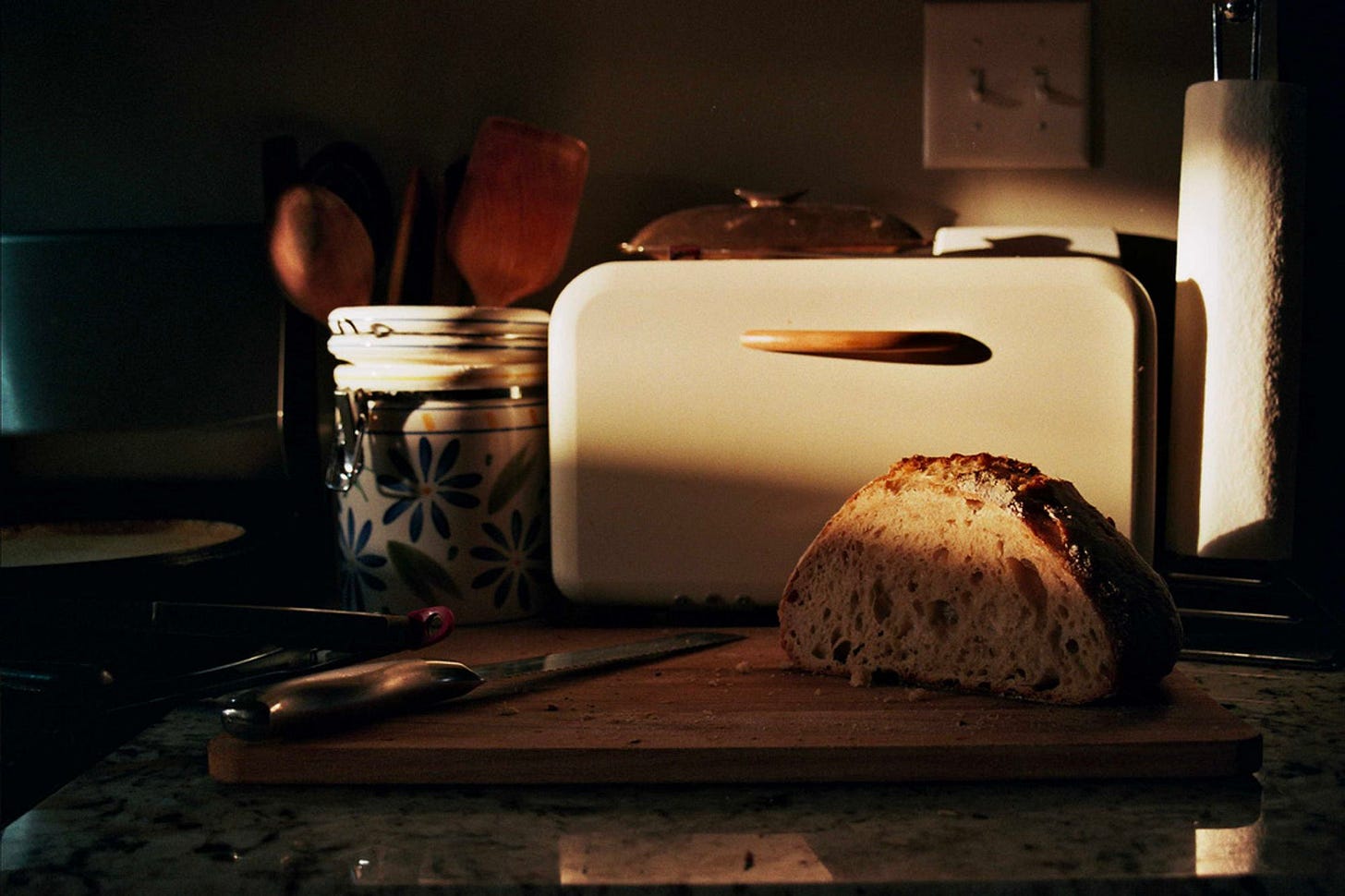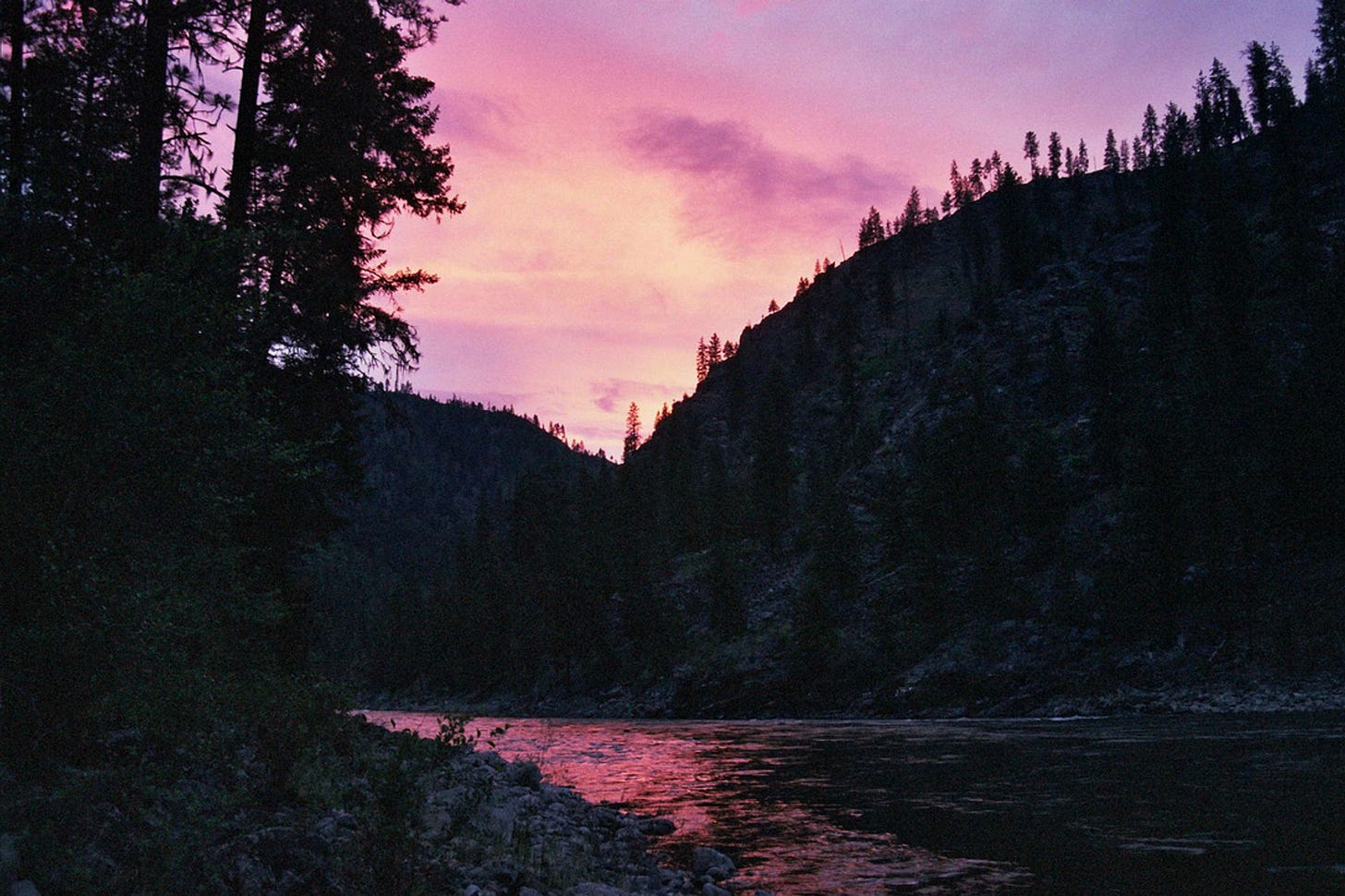December is my favorite month to run. It’s icy and dark and if you can get yourself out of bed and out the door before the sun rises, you can probably deal with whatever else the day has in store. Though I’ve never been a notably good runner, I’ve at least kept at it since the beginning of college. I’ve always liked outdoor endurance sports best — running, cycling, hiking, sailing. Moving through the world, and submitting myself to its whims, stands in contrast to the hours I spend staring at a screen. In general, I abide by two rules:
No cheating. That means no tech, no music, no supplements. It keeps my motivation clean.
Go outside. No treadmills. No stationary bikes. I spend too much time inside anyway.
Predictably, these rules don’t make things easier. Some mornings, my legs feel languid for no discernible reason. Music would distract me from it. An Oura ring would help me understand why. But I’d rather develop the intuition organically by listening to my breath and learning the rhythm of my stride than outsource it to a piece of tech. Pain is part of the point, anyway — as Greg LeMond famously said, “it doesn’t get any easier, you just get faster.”
There’s a certain purity to the experience that’s important to me. One broad critique I have of tech is that there’s a general tendency to sacrifice a real thing for an approximation for the sake of convenience. I’ve raced on Zwift, a multiplayer cycling simulator, and utterly hated it. It felt uncannily fake in a Potemkin or Disney World way — a studied but disingenuous approximation of a real thing.
I guess I’ve just never been good at the whole suspension of disbelief thing. I never really got into video games or fiction or cults of personality or the current thing. Part of it is that I reflexively hate feeling that I’ve been reduced to a commodity that can be so predictably sold to. But it’s more than that — I hate things that feel synthetic. Academia felt like this sometimes, and it was a driving reason for my work in startups during college.
Even if something reads as an equal representation at a surface level, there’s a palpable lack of depth that’s impossible to ignore between an approximation and its original — perhaps homomorphic but certainly not isomorphic. Baudrillard might call this relationship a perversion or a pretense of reality or, eventually, a simulacrum—a new thing entirely divorced from reality.
Broadly, I perceive the dichotomy between an original and its approximation as somewhat aligned to my general posture toward complexity, and parallel to these competing principles:
context vs. essence
dualism vs. materialism
qualitative vs. quantitative thinking
the continuous vs. the discrete
Aristotelian holism/emergence vs. reductionism
I’ve noticed a similar relationship between mimetic (or external) and intrinsic desire. When I desire something truly and internally, it goes all the way down. It feels deep and congruent—unambiguously true, but sometimes inconvenient. Mimetic desire, on the other hand, feels subtly different. There’s something synthetic about it, and deep down you know it.
I entered college with the clear (if naive) ambition to build something myself, and I worked toward this diligently for four years. But after graduation, like many other ambitious people, I felt an incredibly strong pull to take one of the offers I’d interviewed for in management consulting or innovation. It was certainly the more rational choice — I’d accrue not just experience but credibility and financial stability. I realized eventually that this pull was almost wholly external. It would’ve been a battle fought for the sake of fighting, not winning — a distraction with no worthy cause.
how to begin again
Toward the start of this year, I spent time with my fellowship cohort at Stanford—an international group of ambitious and intellectually curious early-twenty-somethings. We talked a lot about what we thought the year, and this part of our life, might hold. The word that came to mind was becoming. I didn’t know what it meant yet.
When I started writing here at the beginning of 2022, I had the sense that something deep and profound was beginning to happen, but I wasn’t sure what. I was about halfway through my startup gap year, which is what I called my first post-grad year, where I’d committed to building my startup without distraction and with full conviction. I was in a deep relationship with someone who wanted me to be something I wasn’t, but whom I loved anyway.
I’d been feeling lost for months—as if I’d been disadhering from myself. I’d just come back from the west, where my cousin and I road tripped from Bozeman to Washington’s Palouse along the frozen Clearwater River. It felt as if the world was devolving around us and within us. Ukraine had just been invaded. Gas prices skyrocketed. He’d just been through a breakup and my relationship had just started to fall apart. I’d been at a loss about my college startup and felt generally demotivated—it had started to feel like a Sisyphean struggle. When things unravel, they unravel all at once.
I started to recognizing my life—all lives—as a series of beginnings, and at each major turn, I felt that I was starting completely anew. Eager anticipation and anxiety feel the same. So do aimlessness and possibility—it’s only a matter of framing. I decided to embrace the uncomfortable joy of ambiguity — to find beauty in carte blanche. When nothing precedes, you can become anything. The only past I belong to is my own.
I had been building my startup in bits and pieces since 2018 — really, it was an entity that composed a collection of projects to which my friends and I had devoted the past four years of our lives. In that time, we’d built things that earned users and even revenue. We built an incredible community of advisors and other founders, and we came up with remarkable things. But nothing seemed to develop real legs because, upon reflection, we never gave anything a fair chance. We didn’t know how—we were product builders, not distributors. We hadn’t learned how to be patient; further, patience felt totally antithetical to the ethos of a startup
Building a startup gave us something that school couldn’t: urgency. I loved my classes and my summer internships, but like Zwift or Disney, they all felt abstract — like playing a game or operating in a simulation, where after everything was said and done, the world remained the same.
The startup was far more than a business. It was the vessel for our combined (often naive) ideology; an excuse for us to learn on our own terms. It put structure to our collective ambition, and gave us a direction to work toward. It defined my life.
on the run
These long, dark, frozen, silent December runs afford ample time to think. This year has been a particularly frenzied speedrun of early-twenties confusion, and for much of it, I felt unclear about who I was or what it was I really wanted. I wasn’t sure if the self was something to achieve, to return to, to discover, to become, or simply to be.
I started framing all of it as a new beginning—fertile grounds to build anew and work toward becoming. I spent more time alone, reading and writing, and started building something new and successful. Gradually, I became reacquainted with myself. The act of creation, I’ve come to realize, is the act of becoming. In a literal sense, we make our own meaning — it is a function of our action. And it’s taken me further than I thought possible.
Complexity read a different way feels like chaos. These early twenties feel especially chaotic, free from the structure that’s defined our lives until this point, tossed between constant convergence and divergence. We’re at once starting from scratch—as beginners to our careers—and the most complete we’ve ever been.
As I try to make sense of this year, the recurring theme seems to be patience. I come to this begrudgingly, for I am not a patient man. Conviction, agency, and openness come fairly naturally to me, but applying them over time is a skill I’ve not yet mastered. Every hard lesson I’ve learned reduces to the simple notion that worthwhile things require time and resolve. You achieve the things you desire most not merely by chasing after them but by opening yourself to them—letting them happen. What we achieve from here follows from the way we manage the essential polarity between patience and action; conviction and openness; waiting and doing.
The mathematician Alexander Grothendieck spoke of solving problems through patience by softening them. He compared it to opening an impossibly hard nut. Instead of taking a hammer and chisel to it, Grothendieck’s philosophy was to place it in a bowl of water and wait for it to soften over time.
Openness is counterintuitive. The reason people are more inclined to take risks in their twenties is because they’re naive — they haven’t been hurt yet. We revert to path dependency as a matter of self-preservation, deferring to billions of lives worth of aggregated human experience. We learn the hard way once so we don’t have to again.
And yet, we’re natural experimenters. We still start from scratch and do things because they’re hard. Some of us make it a point to run against the grain of conventional wisdom, and sometimes those bets pay off. The trick follows in the spirit of the Apollonian-Dionysian dialectic — the way we balance convergence (direction, conviction, shots on goal, order) with divergence (experimentation, exploration, openness, chaos); not one without the other.
But taken too far, openness leaves us vulnerable to decision paralysis, aimlessness, mimesis. It threatens to wear us out and distract us from what we really want. If you’re running a marathon without any sense of your own capability or some semblance of a goal, you’ll either pace too conservatively and leave potential on the table or burn yourself out. Neither is particularly fun. If my half-marathons and frigid December runs have taught me anything, it’s to run my own race.
Conviction is the complementary force that keeps us straight. But of course, conviction at its extremes threatens to blind us, to lead us astray. As ever, we must keep it in balance. And this balance, like the wind through the trees or the current of a river, changes constantly. This constant adjustment, this moving balance, is life’s truest dynamic. It is what defines our lives, and the means by which we will achieve ourselves.
So many gratitudes for 2022, and so much to look forward to in 2023. I’ll be building vertical SaaS alongside incredible founders through Relay. And — I love my friends, and I owe so much to them.




